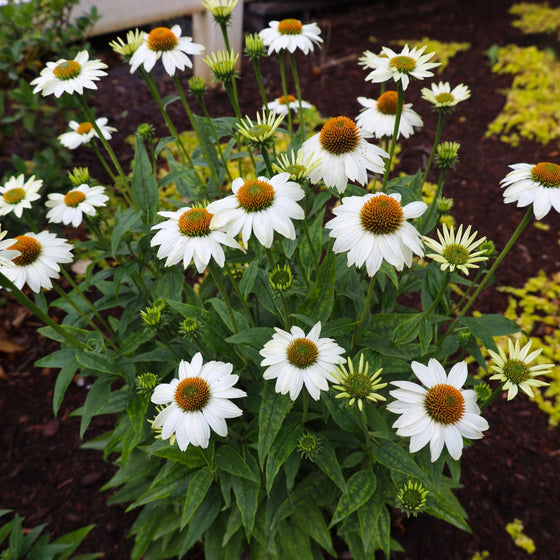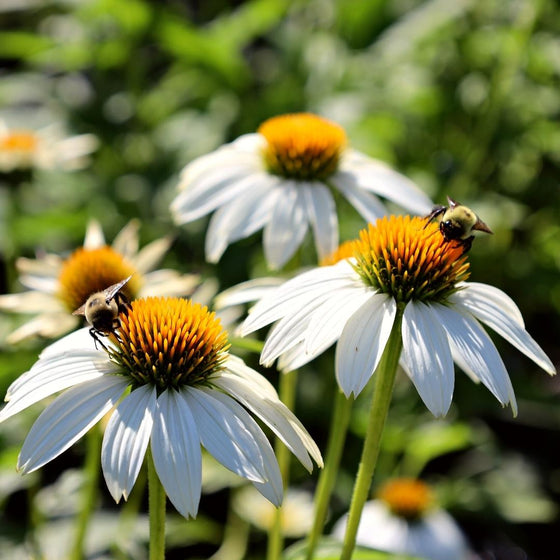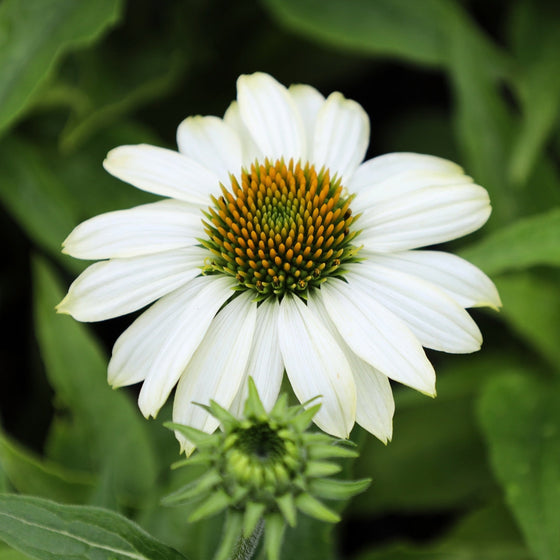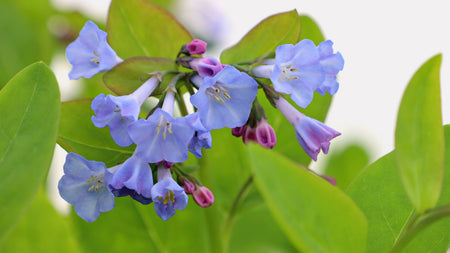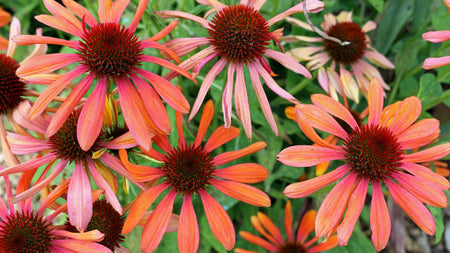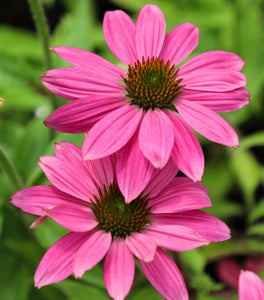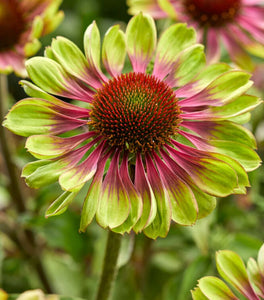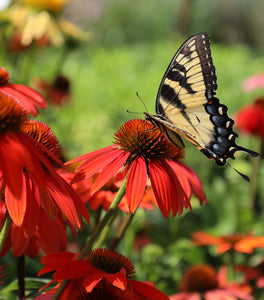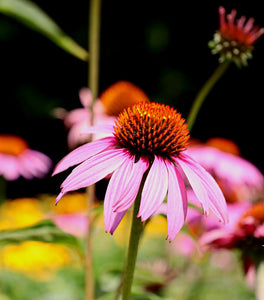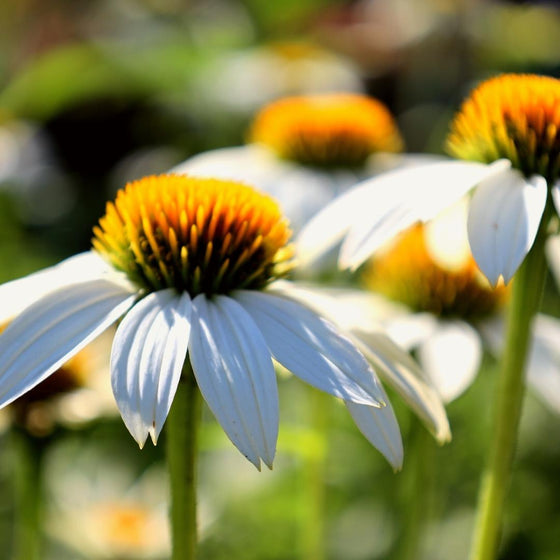
Images Depict Mature Plants
Echinacea PowWow® White – Hardy White Coneflower | Drought-Tolerant, Deer-Resistant Perennial
Classic elegance meets unmatched durability.
The Echinacea PowWow White Coneflower brings refined beauty to any sunny landscape with crisp white petals and golden centers that bloom profusely throughout the summer. This compact perennial reaches just 18 to 24 inches tall, making it ideal for borders, pollinator gardens, and containers. Unlike older coneflower varieties that can flop or require staking, PowWow White maintains a tidy, upright form and thrives even in challenging garden conditions.
Designed for dependable color and low maintenance.
Native to North America, Echinacea PowWow White thrives in full sun and well-drained soil, tolerating drought once established. Its strong stems and extended bloom period make it a garden favorite for both beginners and seasoned growers. You’ll enjoy months of color from early summer through frost, especially when spent blooms are removed to encourage continuous flowering.
A magnet for pollinators and a dream for gardeners.
Each daisy-like flower attracts butterflies, bees, and hummingbirds, while the dried seed heads provide food for finches in the fall and add texture to winter gardens. Deer and rabbits rarely bother this plant, making it perfect for low-maintenance, wildlife-friendly landscapes. The vibrant white petals pair beautifully with purple coneflowers, black-eyed Susans, and ornamental grasses for a timeless summer display.
The perfect white perennial for every garden style.
Whether you’re designing a cottage garden, modern border, or native wildflower bed, PowWow White Echinacea brings purity, structure, and resilience. It performs beautifully in hot, dry conditions and returns year after year, offering a fresh wave of white blooms that light up your landscape season after season.
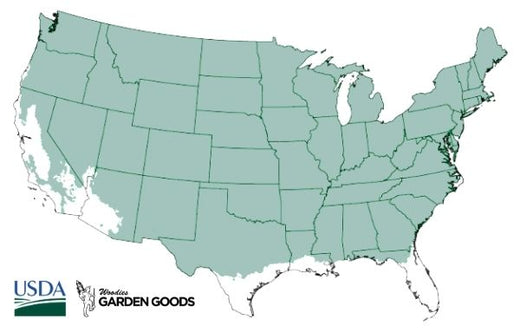
| Hardiness Zone: | 3-8 |
|---|---|
| Mature Height: | 1 to 2 Feet |
| Mature Width: | 1 to 2 feet |
| Sunlight: | Full sun to part shade |
| Water Requirements: | Prefers dry soil |
| Selling Points: | Native, deer resistant, drought tolerant, attracts pollinators |
How to Care for Echinacea Pow Wow White
Echinacea PowWow White planting guide
How should I plant my Echinacea PowWow White?
Choose a location with full sun (6+ hours daily) and soil that drains well. Dig a hole twice as wide as the root ball and as deep as the pot. Set the plant so the crown is level with the soil surface, backfill, and water thoroughly to settle the roots. Apply a thin layer of mulch to retain moisture but avoid covering the crown. Echinacea thrives in average soil and does not require rich amendments — it performs best when not overwatered or over-fertilized.
How often should I water Echinacea PowWow White?
Water deeply once or twice a week during the first growing season to establish strong roots. Once established, PowWow White is drought-tolerant and requires only occasional watering during prolonged dry spells. Always let the soil dry slightly between waterings, as overwatering can lead to root rot. In most climates, natural rainfall is sufficient after establishment, especially in full-sun garden beds.
How do I fertilize Echinacea PowWow White Coneflower?
Fertilize lightly in early spring using a balanced, slow-release fertilizer or compost. Excessive fertilization encourages leafy growth at the expense of flowers, so it’s best to keep feeding minimal. A thin topdressing of compost in spring improves soil structure and promotes long-term health. This perennial performs well even in poor or rocky soils, making it one of the easiest flowering plants to maintain.

How and when should I prune or deadhead my Echinacea PowWow White?
Deadhead spent blooms throughout the summer to encourage more flowers. In late fall, you can either cut the stems back to 2 inches or leave them standing for winter interest and to feed songbirds. In early spring, remove any dead foliage before new growth begins. This keeps plants neat, improves air circulation, and encourages vigorous blooming for the coming season.

